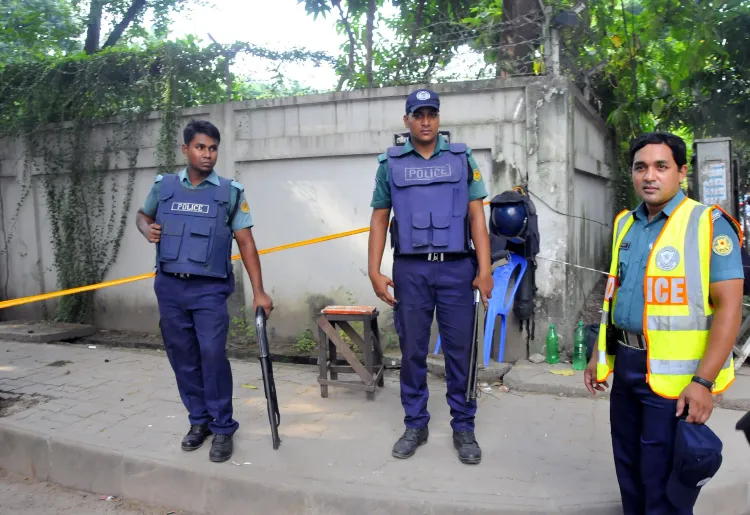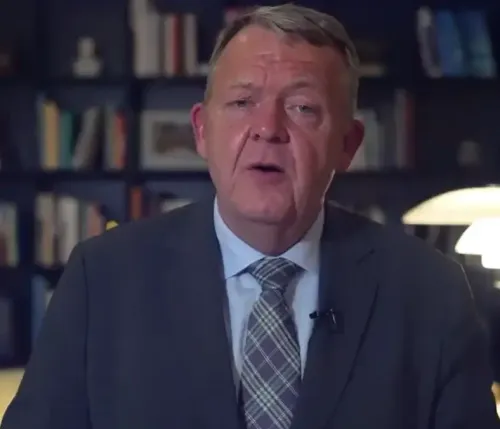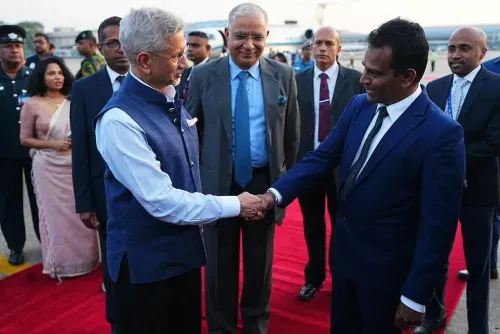Why is the Yunus government cracking down on the Awami League?

Synopsis
Key Takeaways
- Former Secretary Abu Alam Mohammad Shahid Khan has been arrested as part of a crackdown on Awami League leaders.
- Six individuals were detained under the Anti-Terrorism Act for alleged destabilization attempts.
- The arrests are part of a larger trend of political repression under the Yunus-led interim government.
- Public outrage and condemnation have arisen from the Awami League regarding these arrests.
- The application of the Anti-Terrorism Act raises questions about civil rights and democracy in Bangladesh.
Dhaka, Sep 8 (NationPress) In the early hours of Monday, Bangladesh police apprehended the nation's former Secretary Abu Alam Mohammad Shahid Khan in relation to a case initiated under the Anti-Terrorism Act at Shahbagh Police Station.
Additionally, authorities detained five other leaders and activists affiliated with the Awami League and its associated organizations from various locations in the capital connected to the same case, as reported by local media.
Dhaka Metropolitan Police's Deputy Commissioner Talebur Rahman confirmed that all six individuals, including former Secretary Abu Alam, were arrested due to their purported involvement in a recent event held by the platform 'Mancha 71' at Dhaka Reporters Unity (DRU).
Previously, Abu Alam had served as Deputy Press Secretary to former Prime Minister Sheikh Hasina during the Awami League government from 1996 to 2001.
The case filed under the Anti-Terrorism Act at Shahbagh Police Station alleges that the accused sought to destabilize the nation through armed conflict during a roundtable discussion held by 'Mancha 71' at DRU on August 28, according to The Business Standard.
These recent events occur amid an escalating crackdown on Awami League leaders and affiliated activists under the interim government led by Muhammad Yunus.
On August 28, police arrested 16 individuals, including former minister and freedom fighter Abdul Latif Sidiqqui and Dhaka University Professor Sheikh Hafizur Rahman, igniting public outrage nationwide.
The police initiated a case against them under the Anti-Terrorism Act at Shahbagh Police Station.
On August 29, all 16 accused were subsequently remanded to jail after being presented in court.
Last week, a Bangladeshi court rejected bail applications from Siddique and journalist Monjurul Alam Panna concerning the alleged anti-terrorism case, as reported by local media.
The arrests followed a discussion titled 'Our Great Liberation War and the Constitution of Bangladesh', organized by Mancha 71.
Professor Rahman from Dhaka University stated during the discussion, “We are witnessing an ill attempt to undermine the country’s constitution. Groups like Jamaat, Shibir, and the National Citizen Party are involved in this, with Muhammad Yunus at the forefront, humiliating freedom fighters.”
Following Rahman's remarks, a group entered the DRU auditorium, dismantled the roundtable banner, and confined the participants, before handing them over to the police.
The Awami League Party recently condemned the arrest of “heroic” freedom fighters and those inspired by the spirit of the country’s 1971 Liberation War as acts of mob terrorism.
In a statement slamming the Yunus-led interim government, the party remarked, “Since the illegal usurpation of state power by the murderous fascist Yunus clique, the people have witnessed their continuous attempts to disgrace and insult the Great Liberation War and our freedom fighters.”










